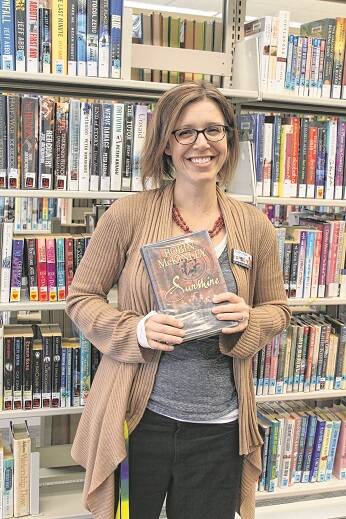I enjoy reading books with happy endings.
This has been particularly important during the last two years. In truth, I have enjoyed such books since I was a high schooler many moons ago when I began reading romance novels. That’s been, ahem, quite a few years, so I’ve been an observer and participant as the romance genre has evolved over recent decades.
Romance is one of the most popular fiction genres and has been since before I was born. Why is that? I surmise it’s because the genre adapts to changing times yet still loosely follows a formula that ends with the protagonists being 1) alive and 2) happy. I read romance to connect emotionally with the characters, their highs and lows, their ultimate triumphs. I prefer that over delving into deep plot development. The best romance authors are able to take the genre’s rules and create engaging prose and characters in inventive ways.
Some of the newest authors in the genre reflect changing attitudes, not just in the publishing sphere but throughout our world at large. A pressing modern issue is mental health. Rachel Lynn Solomon’s Weather Girl, Lia Louis’ Eight Perfect Hours, and Emily Henry’s hit novel Beach Read all realistically portray anxiety and depression while exploring romantic relationships.
Another issue of the day, body positivity, is highlighted in Denise Williams’ The Fastest Way to Fall and Olivia Dad’s Spoiler Alert. Helen Hoang, herself a woman with Autism Spectrum Disorder, has written moving neurodiversity romance with The Kiss Quotient and its sequels.
Several recent novels highlight how debilitating grief can be but recognize that doesn’t mean happiness cannot be found. In particular, I recommend Float Plan by Trish Doller, The Love Hypothesis by Ali Hazelwood, and The Happy Ever After Playlist by Abby Jimenez.
Our societal shifts are also reflected in romance novels of the day. Interracial relationships are key in The Devil Comes Courting by Courtney Milan (for those of you who enjoy historical romance novels) and Party of Two by Jasmine Guillory. Class struggles — OK, those are perennial — abound in The Road Trip by Beth O’Leary and Get a Life, Chloe Brown by Talia Hibbert. LGBTQ characters, definitely an increasing part of the romance genre, star in Annabeth Albert’s Conventionally Yours and Alexis Hall’s Boyfriend Material.
While Jane Austen isn’t an author you’d think of as modern, a lot of her themes translate to life today. Several authors of color have taken her classic novels and applied them to the modern world. Soniah Kamal’s Unmarriageable, set in Pakistan, is a delight as is Uzma Jalaluddin’s Ayesha at Last which takes place in a Muslim community in Toronto. Both are adaptations of Pride and Prejudice. Veteran novelist Sonali Dev has been adapting several of Austen’s novels in a series of books about the Raje family. Her latest, Incense and Sensibility, retells, not surprisingly, Sense and Sensibility.
If you would like to delve into these characters’ stories, follow their tribulations and triumphs, and rejoice in their happy endings, check them out from your local library this month.





